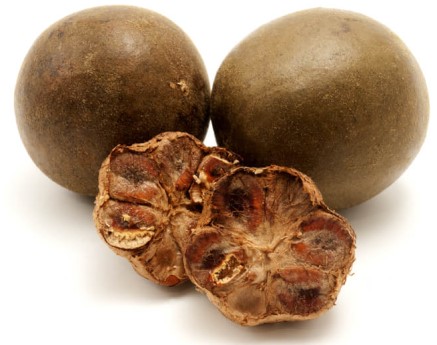KETOASK result: monk fruit keto
CAN MONK FRUIT FIT INTO KETO DIET?
Monk fruits make up about 16 grams of net carbohydrates per 3.5 ounces (100 grams), which makes them a very difficult fruit to fit into Standard or even Low-Carb ketogenic diet because of it’s sugar and carb cound. This food is not keto-friendly and should not be included in the ketogenic diet.
This food is one of the many foods that will not provide you with good fats. As a result of a high carbohydrate count, this food should not be included in the ketogenic diet as even a smaller amount contain higher carb and sugar count.
MONK FRUIT CONTAINS 16 GRAMS OF NET CARBS PER 3.5 OUNCES (100 GRAMS)
Ketogenic Net Carbs = Fiber Count Deducted From Carb Count:
CARBS – 16 g. per 3.5 ounces (100 grams)
FIBER – 0 g. per 3.5 ounces (100 grams)
FAT – 2 g. per 3.5 ounces (100 grams)
2 KETOGENIC DIET LEVELS:
Standard Ketogenic Diet includes exactly 0-30 grams of net carbs per day & approximately 0-10 grams of net carbs per serving.
Low-Carb Ketogenic Diet includes exactly 0-50 grams of net carbs per day & approximately 0-15 grams of net carbs per serving.
A growing number of health-conscious consumers are pursuing a keto lifestyle and products. The reason is health benefits, weight loss, and improved performance.
The Keto diet involves going on low, no higher than 30 grams of net carbs per day to almost 0 grams. The ketogenic diet also includes increasing your fat consumption to a higher level. Fats can make up as much as 65% of your daily macronutrients intake. This will get your body into a state of ketosis. In this state of ketosis, the body is more inclined to use fat for energy. Depleting your carbohydrate/glycogen liver stores and then moving onto fat for fuel. Fats typically provide more than half of the body’s energy needs. Fat from food is broken down into fatty acids, which can travel in the blood and be captured by hungry cells to convert into energy!

